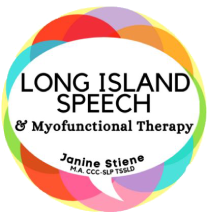Blog
What is dysphagia? Why do Speech Pathologists treat it?
Dysphagia is laments terms is difficulty with swallowing. Dysphagia can occur at any stage of swallowing…below are the phases of swallowing and what should be occurring during a typical swallow.
- Oral phase – sucking, chewing, and moving food or liquid into the throat
- Pharyngeal phase – starting the swallowing reflex, squeezing food down the throat, and closing off the airway to prevent food or liquid from entering the airway (aspiration) or to prevent choking
- Esophageal phase – relaxing and tightening the openings at the top and bottom of the feeding tube in the throat (esophagus) and squeezing food through the esophagus into the stomach
I thought it might be good to have a list of possible dysphagia symptoms…the below list is from the American Speech and Hearing Association:
What are some signs or symptoms of swallowing disorders?
Several diseases, conditions, or surgical interventions can result in swallowing problems.
General signs may include:
- coughing during or right after eating or drinking
- wet or gurgly sounding voice during or after eating or drinking
- extra effort or time needed to chew or swallow
- food or liquid leaking from the mouth or getting stuck in the mouth
- recurring pneumonia or chest congestion after eating
- weight loss or dehydration from not being able to eat enough
Speech pathologists are experts in the anatomy of the speech mechanism…and that includes a majority of the structures that we need to swallow. Most of the muscles we use to eat we also use to talk! If you know someone who is having difficulty eating and swallowing consult with a medical professional asap!
–Stephanie





Here is a great post on dysphagia in children!
http://www.pediastaff.com/blog/worth-repeating-common-warning-signs-of-dysgraphia-in-children-pre-k-to-grade-2-13974
–Stephanie